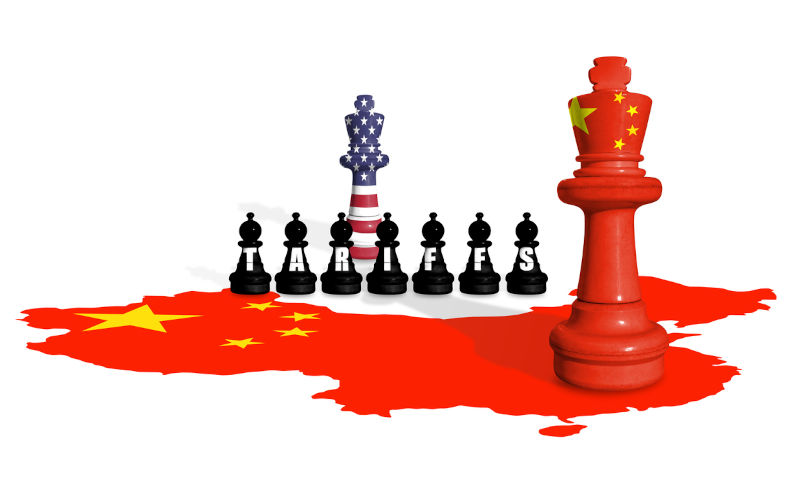Thanks to Trump, China has the cards it needs to win the trade war
May 7, 2025
Trump’s actions have left nations feeling betrayed while accelerating China’s self-sufficiency. These, plus Beijing’s rare earth dominance, could spell victory.
While US President Donald Trump has been consistent in using tariffs to try to force China to buy more American goods to reduce the trade deficit, his policies have inadvertently provided Beijing with multiple pathways to gain the upper hand in the trade war.
As a business executive, Trump may view US-China relations in terms of a buyer-seller dynamic. He may think the US has leverage as the largest buyer of Chinese goods. But until the US establishes reliable sourcing alternatives or solidifies an end-to-end supply chain solution domestically, it may have no competitive edge over China.
Conversely, China has maintained its position as the world’s largest manufacturing hub, contributing about 30% of global manufacturing added value last year. Further, China dominates the global sales of critical materials for semiconductors and electric vehicles, granting it significant leverage.
Since Trump’s return to the White House, he has ratcheted up tariffs on Chinese goods to 145% in the hope that China surrenders and initiates negotiations. But instead of backing down, China responded with retaliatory tariffs of 125% on US imports and declared itself done with the tit-for-tat. While it later reportedly exempted some US imports from the tariff, Beijing has denied engaging in tariff negotiations with the US.
China, it would seem, is betting on Trump backing down. After all, China has three cards it can play to win the trade war.
First, Trump’s 2 April announcement of “reciprocal” tariffs has raised doubts about US trading partnerships with more than 90 countries, including European Union states, Vietnam, Malaysia, Indonesia, Cambodia, Japan and South Korea.
As US and global financial markets tumbled in shock, Trump abruptly suspended most of the new tariffs on 10 April for 90 days, acknowledging that the bond market was “getting a little queasy”. But the flip-flop is only increasing mistrust among US trading partners from Southeast Asia to Europe.
This has opened an opportunity for China to shore up its trading relationships with the countries feeling betrayed by the US.
Capitalising on these doubts, President Xi Jinping’s recent visit to Southeast Asia sent a core message, summed up by top diplomat Wang Yi: “At this moment of crisis, the world yearns for stability and direction, with neighbouring countries expecting China to demonstrate leadership and provide certainty.”
While many Southeast Asian countries traditionally do not take sides, China is promoting stability while the US is breeding uncertainty. This contrast can make a difference in turbulent times.
To strengthen ties with the EU, Xi has proposed co-operation against Trump’s trade war. China and the EU “must jointly resist unilateral and intimidating practices”, he said while meeting Spanish Prime Minister Pedro Sanchez in Beijing.
Also, China can leverage blocs such as BRICS and co-operation under its Belt and Road Initiative to counter the trade pressure from the US and build a global coalition more favourable to its trade practices.
Second, China can focus on domestic growth and technological advancement, reducing its reliance on the US market and increasing its leverage.
To ensure food security, China has launched initiatives to boost production and reduce its reliance on imports. This includes promoting new crops, adopting agricultural technologies and providing policy as well as financial support to farmers. In addition, China is increasingly sourcing products such as soybean, pork and fruit from Latin America.
As the US-China trade war escalates, Chinese businesses will lose access to the American market. But they can redirect some exports to countries in Europe and Asia, where consumers also want phones, toys and toasters.
Beijing could also put more money in the pockets of households to boost demand for Chinese products while providing subsidies to businesses to help them remain solvent. Already, China has a subsidy scheme for purchases of locally made household appliances, for instance. This initiative aims to boost spending and support local businesses, offsetting the hit from the trade war.
China has also rolled out policies to encourage innovation and support hi-tech industries, ensuring its economy remains resilient amid global trade uncertainties. Such strategies are crucial, as China strives to maintain stability and growth while navigating the challenges posed by fluctuating trade dynamics.
Third, China’s recent export restrictions on rare earth minerals and magnets have significant implications for the US economy and its national security. For example, Tesla recently revealed its production of Optimus humanoid robots had been disrupted due to the difficulty of obtaining neodymium-iron-boron magnets. General Motors and other carmakers are also likely to experience increased costs and production delays in manufacturing electric vehicles.
Even the US military, which depends on these minerals for the advanced technologies in its arsenal such as F-35 fighter jets and missile guidance systems, can expect to face supply disruptions.
Trump’s aim is to change the global trading system. China’s plan, it seems, is simply to wait out the US political cycle. Trump’s fluctuating trade policies have given China opportunities to gain an advantage in the trade war. By playing the long game and exploiting US weaknesses, China has strengthened its position. As the trade war drags on, how the US will respond and if Trump can develop an effective strategy before the 90-day tariff pause ends remain unknown.
Trump once told Ukrainian President Volodymyr Zelenskyy that, “you don’t have the cards”, saying he must accept a US peace plan. Ironically, the US president has handed to China the cards it needs to win the trade war.
Republished from South China Morning Post, 4 May

